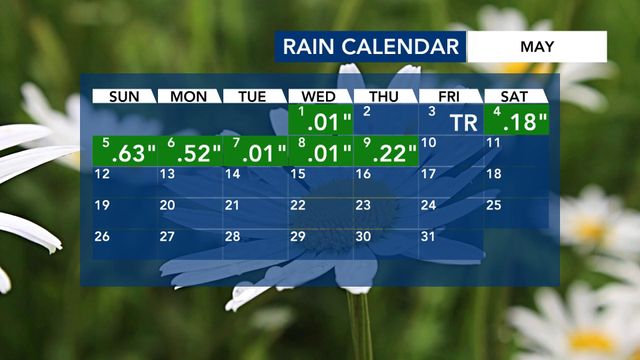No Labels, no primary vote. NC's election rules will shut voters out of the March primaries if they're not careful
The 2,125 people who’ve registered so far as members of North Carolina’s newest political party — the No Labels Party — won’t have a primary to vote in next year, and they may not have a single party candidate to support.
That could come as a surprise to party members accustomed to getting a ballot when they turn up for primary elections. State law only lets voters cast ballots in primaries for the parties they’re affiliated with, though people registered as “unaffiliated” can vote in any party primary.
North Carolina law also requires newly formed parties – No Labels qualified as a North Carolina political party in August – to nominate candidates by convention instead of a primary. It remains to be seen whether the party does that here, because No Labels leadership has said the party only exists to offer another option in the presidential race if they don't like the Democratic and Republican presidential front runners who emerge from those parties' primaries.
All of this means voters registered with No Labels won’t have a say in next year's primaries, which are scheduled for March 5 in North Carolina and 15 other states.
They may not have a candidate to support at all. Even the state’s most prominent party supporter, former Gov. Pat McCrory, hasn’t switched his voter registration to No Labels, and he says the group isn’t actively asking people to do so.
“This is more of a movement than a party,” said McCrory, who remains a registered Republican.
So far No Labels’ registrations amount to a tiny fraction of a percent of North Carolina’s nearly 7.4 million voters.
‘Disenfranchising themselves’
If the country’s two largest parties nominate President Joe Biden and former President Donald Trump, No Labels plans to run its own candidate in the general election. The group says it wants a common sense candidate most Americans can vote for. Many Democrats fear a well financed third party option will pull votes from Biden and help reelect Trump.
The group says it won’t run anyone for down-ballot offices, which in North Carolina next year means no candidates for governor, Congress, the legislature or any other state or local offices.
That means most No Labels members in North Carolina won't have anything to vote on during in a primary, though some may live in areas with local, non-partisan races on the ballot that day.
“They are essentially disenfranchising themselves from the party primary,” said Chris Cooper, a Western Carolina University political science professor.
More than 2.6 million people are registered as unaffiliated — the state’s biggest voting bloc, which gets to decide on election day which primary to vote in. It’s possible some No Labels registrants have confused the party’s name with unaffiliated — the designation North Carolina uses for voters who aren’t part of any political party, Cooper said.
A Los Angeles Times poll in 2016 found that 73% of Californians registered with the American Independent Party didn’t realize they’d joined a political party.
Given No Labels’ small size so far, any confusion here likely won’t affect many people. But it’s a growing group, and “these are real people with real votes and real rights to vote,” Cooper said.
North Carolina’s voter registration forms identify No Labels as a political party, but the forms don’t explain the state’s party primary participation rules.
Andy Jackson follows voter registration numbers closely for the John Locke Foundation, a right-leaning think tank. He said people who register with No Labels may not know they’ll miss out on the primary. But that’s because most voters, regardless of party, don’t know North Carolina’s primary rules, he said.
Party registrations can be checked and changed online, but voters have to switch parties at least 25 days before an election to vote in their new party’s primary. During early voting, the state offers same-day registration, meaning people who aren’t registered can register and vote that same day, but people who are already registered aren’t allowed to change parties through same-day registration.
No Labels is one of five political parties recognized by the state. There are about 2.4 million Democrats, 2.2 million Republicans, 50,000 Libertarians and 1,500 Green Party members.
The Libertarian Party plans to hold a presidential primary, but the results won’t be binding, and the party’s candidate will be named at a convention. Other nominations in North Carolina will be decided by a primary open to Libertarians and unaffiliated voters, and the state party expects at least two candidates to run for governor: Mike Ross and Shannon Bray.
Green Party officials didn’t immediately respond to WRAL News questions about their 2024 nomination process.
Another political party, the Constitution Party is working to regain ballot access in North Carolina, a process that requires signed petitions.
Correction: This article has been updated to note that some communities have local, non-partisan races on the ballot March 5, which members of any political party can vote in. It has also been edited to add information about the way North Carolina law limits a new political party's nomination method.








